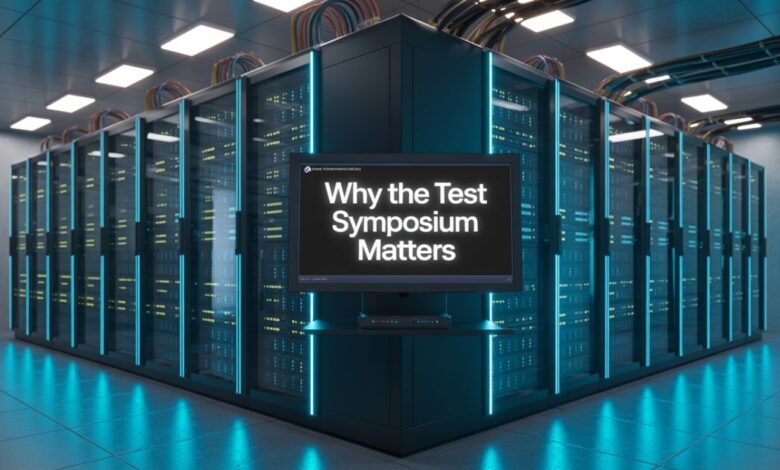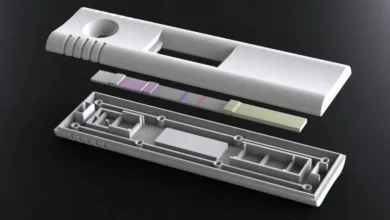Why the Asian Test Symposium Matters: Powering the Future of VLSI Testing in Asia

In today’s fast-paced technological world, the need for reliable, high-performance integrated circuits is more critical than ever. As chips grow increasingly complex, the methods to test and verify their functionality must evolve in parallel. This is where the Asian Test Symposium plays a vital role. Held annually across various locations in Asia, the symposium has become a central hub for innovation, research, and collaboration in the field of VLSI testing and system reliability.
Whether you’re an academic researcher, an industry engineer, or a student eager to learn, the Asian Test Symposium offers an unmatched platform to explore the latest advancements in chip testing, fault tolerance, and design for testability.
What Is the Asian Test Symposium?
History and Background
The Asian Test Symposium (ATS) began in 1992 as a response to the growing demand for rigorous testing methodologies in Asia’s booming semiconductor industry. Sponsored by the IEEE and other reputable technical societies, ATS has steadily grown into a prestigious international conference. It draws participation from scholars, engineers, and companies worldwide, all with a shared interest in chip design verification and test engineering.
Over the years, the event has been hosted in high-tech powerhouses such as Japan, South Korea, China, and Taiwan—countries that are globally recognized for their semiconductor innovation. Each location brings its regional expertise, contributing to a richer and more diverse exchange of ideas.
Mission and Objectives
The Asian Test Symposium exists to:
- Encourage high-quality research in areas such as design for testability, fault diagnosis, and validation techniques.
- Connect academia and industry for mutual benefit.
- Promote best practices in chip- and system-level testing.
- Offer a platform for emerging professionals and students to present novel research and gain international exposure.
Key Topics Covered at the Asian Test Symposium
The Asian Test Symposium offers deep dives into the most critical and current topics in chip and system testing. The conference agenda is designed to reflect emerging trends while also addressing longstanding challenges in VLSI systems.
VLSI Design and Testing
As semiconductor geometries shrink, testing for reliability and performance becomes significantly more challenging. ATS features research on logic-level testing, scan-chain optimization, and layout-aware test strategies that help ensure chips are both functional and efficient.
Fault Diagnosis and Reliability
Understanding chip failure modes is crucial to improving system resilience. ATS sessions explore topics like defect modeling, aging and wear-out mechanisms, and soft error resilience, equipping designers with strategies to develop fault-tolerant systems.
Test Generation and Validation
Generating effective and efficient test vectors remains a fundamental part of chip validation. Researchers present advancements in automatic test pattern generation (ATPG), formal methods, and simulation-based validation, all aimed at ensuring accurate and comprehensive verification.
AI and Machine Learning in Testing
The integration of AI into testing processes is one of the most exciting developments in recent years. ATS showcases how machine learning algorithms are being applied to automate test generation, identify patterns in failure data, and optimize debugging processes.
Emerging Topics
In response to the industry’s evolution, ATS continues to expand its scope. Recent symposiums have included sessions on:
- Quantum computing test protocols
- Internet of Things (IoT) reliability
- 3D-ICs and chiplet integration challenges
- Security vulnerabilities in testing frameworks
Who Should Attend the Asian Test Symposium?
Academic Researchers
ATS provides academics with a global platform to present research, receive feedback, and collaborate internationally. Universities often bring teams of graduate students to network and share groundbreaking work.
Industry Professionals and Engineers
From test engineers to verification specialists, industry attendees benefit from the symposium’s practical focus and the opportunity to benchmark practices, learn new tools, and understand market trends.
Graduate Students and Postdoctoral Scholars
Young researchers find the Asian Test Symposium to be a stepping stone for future success. Beyond presenting papers, students gain access to mentorship, career opportunities, and inspiration from leading experts.
Tech Entrepreneurs and Startups
For startups working on innovative testing tools or chip architectures, ATS is an ideal venue to demonstrate technologies, network with investors, and stay ahead of industry standards.
Highlights from Recent Asian Test Symposium Events
Notable Keynote Speakers
Each year, the symposium invites thought leaders from companies like Intel, Samsung, MediaTek, and Synopsys, along with professors from top institutions like Tsinghua University and Tokyo Institute of Technology. Their insights often highlight the direction in which the industry is headed.
Panel Discussions and Workshops
Interactive panels bring together professionals from various sectors to discuss issues like design-for-test in AI hardware, supply chain security, and future trends in system reliability.
Award-Winning Research Papers
Top-performing papers are recognized for their technical merit, originality, and impact on industry, and are often selected for IEEE Transactions or other top-tier journal publications.
International Participation and Collaboration
The symposium typically sees attendees from over 20 countries, reflecting a broad spectrum of expertise and promoting cross-cultural collaboration in VLSI testing.
Benefits of Attending the Asian Test Symposium
Networking Opportunities
ATS offers unparalleled access to leading researchers, industry veterans, and innovative startups. Casual conversations during breaks or poster sessions often spark long-term partnerships.
Access to Cutting-Edge Research
Be the first to learn about new tools, methodologies, and frameworks that are shaping the next generation of integrated circuits and systems.
Career Advancement
Whether you’re presenting a paper or simply attending, involvement in ATS is a valuable addition to any technical resume, increasing your visibility in the VLSI community.
IEEE Publications and Recognition
Accepted papers are published in IEEE Xplore, granting authors academic recognition and making their work accessible to a global audience.
Upcoming Asian Test Symposium – What to Expect
Location and Dates
The 2025 Asian Test Symposium is scheduled to take place in Taipei, Taiwan—a global semiconductor hub home to companies like TSMC and ASE Group. The venue offers excellent infrastructure and access to regional industry leaders.
Call for Papers and Submission Deadlines
Typically, the call for papers is announced six months before the event. Papers undergo a rigorous peer-review process, ensuring high-quality presentations. Authors are encouraged to consult the official website for updated deadlines and submission formats.
Registration Information
Discounted rates are available for students, IEEE members, and early-bird registrants. Group rates may be offered for institutional participants.
How to Participate Virtually or In-Person
ATS continues to support a hybrid format, offering full access to live sessions, recorded talks, and networking lounges to remote participants, thereby maximizing global reach.
How the Asian Test Symposium Impacts the Semiconductor Industry
Accelerating Innovation and Quality
Through the solving of real-world issues of processing, ATS directly increases the efficiency, pace, and dependability of the chip manufacturing and design cycles.
Bridging Academia with Industry Needs
The close collaboration between universities and tech companies at ATS ensures that academic research leads to tangible, applicable solutions that can be integrated into next-generation products.
Regional Influence on Global Standards
As Asia continues to lead in semiconductor output, ATS helps define global testing practices, benchmarks, and regulatory standards, reinforcing the region’s influence on the industry worldwide.
FAQs
What is the Asian Test Symposium?
The Asian Test Symposium is an IEEE-sponsored annual conference that focuses on VLSI test and design-for-testability research in Asia and beyond.
Who organizes the Asian Test Symposium?
ATS is organized by a collaboration of IEEE societies, academic institutions, and regional technical committees related to semiconductor design and testing.
How can I submit a paper to the Asian Test Symposium?
You can submit papers through the symposium’s official website during the Call for Papers period. Submissions undergo a rigorous peer-review process.
Is the Asian Test Symposium IEEE-sponsored?
Yes, it is officially sponsored by the IEEE and is considered one of its flagship events in the area of electronic testing.
Can I attend the Asian Test Symposium virtually?
Yes. Since the 2020 pandemic, ATS has adopted hybrid formats, allowing both in-person and remote participation.
What types of papers are accepted at ATS?
Papers focusing on VLSI testing, design for testability, hardware security, fault modeling, and test automation are typically accepted.
What industries benefit from the Asian Test Symposium?
Semiconductors, consumer electronics, automotive, aerospace, and even emerging quantum technology sectors gain insights and innovations from ATS.
Where can I find more information about upcoming ATS events?
Visit the official IEEE ATS website or check conference listing platforms like IEEE Xplore or ConfTool.
Conclusion: Shaping the Future of VLSI Testing
The Asian Test Symposium is far more than an academic event. It’s a catalyst for change, a breeding ground for innovation, and a global platform where the future of chip testing is actively shaped. For professionals, researchers, and students alike, participation in ATS is not just beneficial—it’s essential in keeping pace with a rapidly evolving industry.




